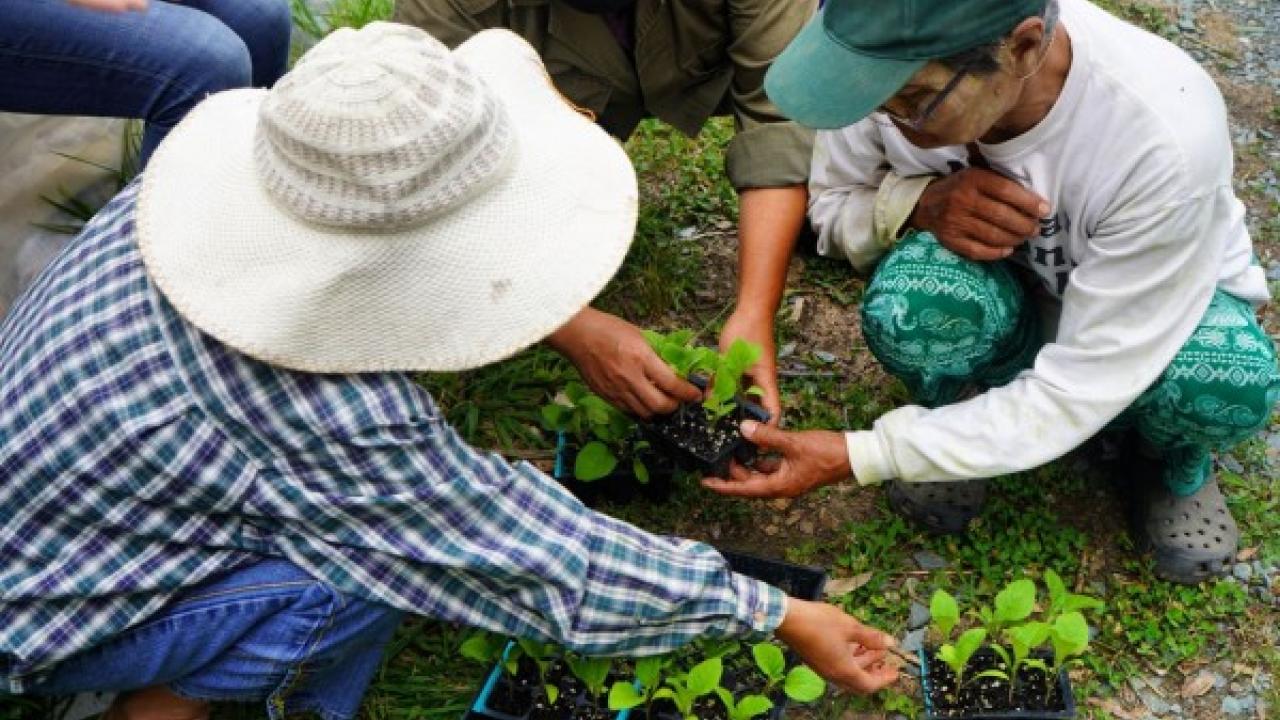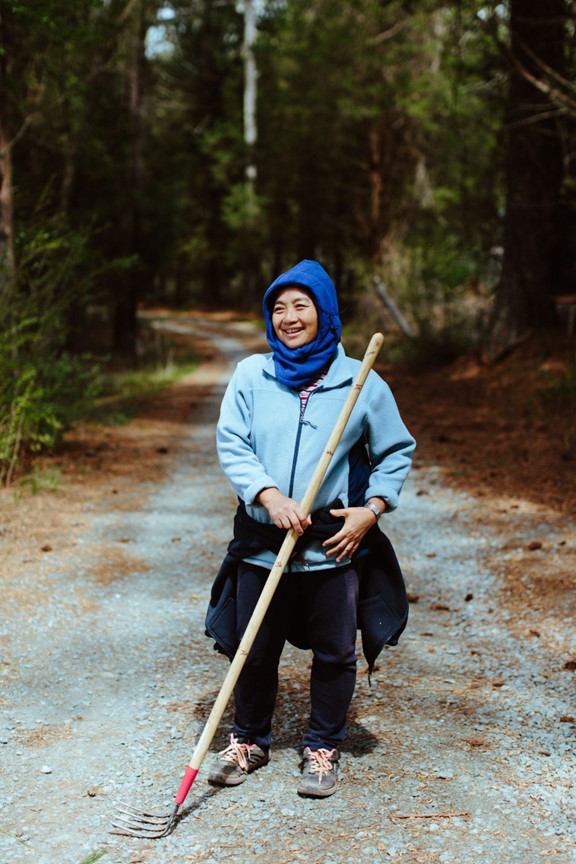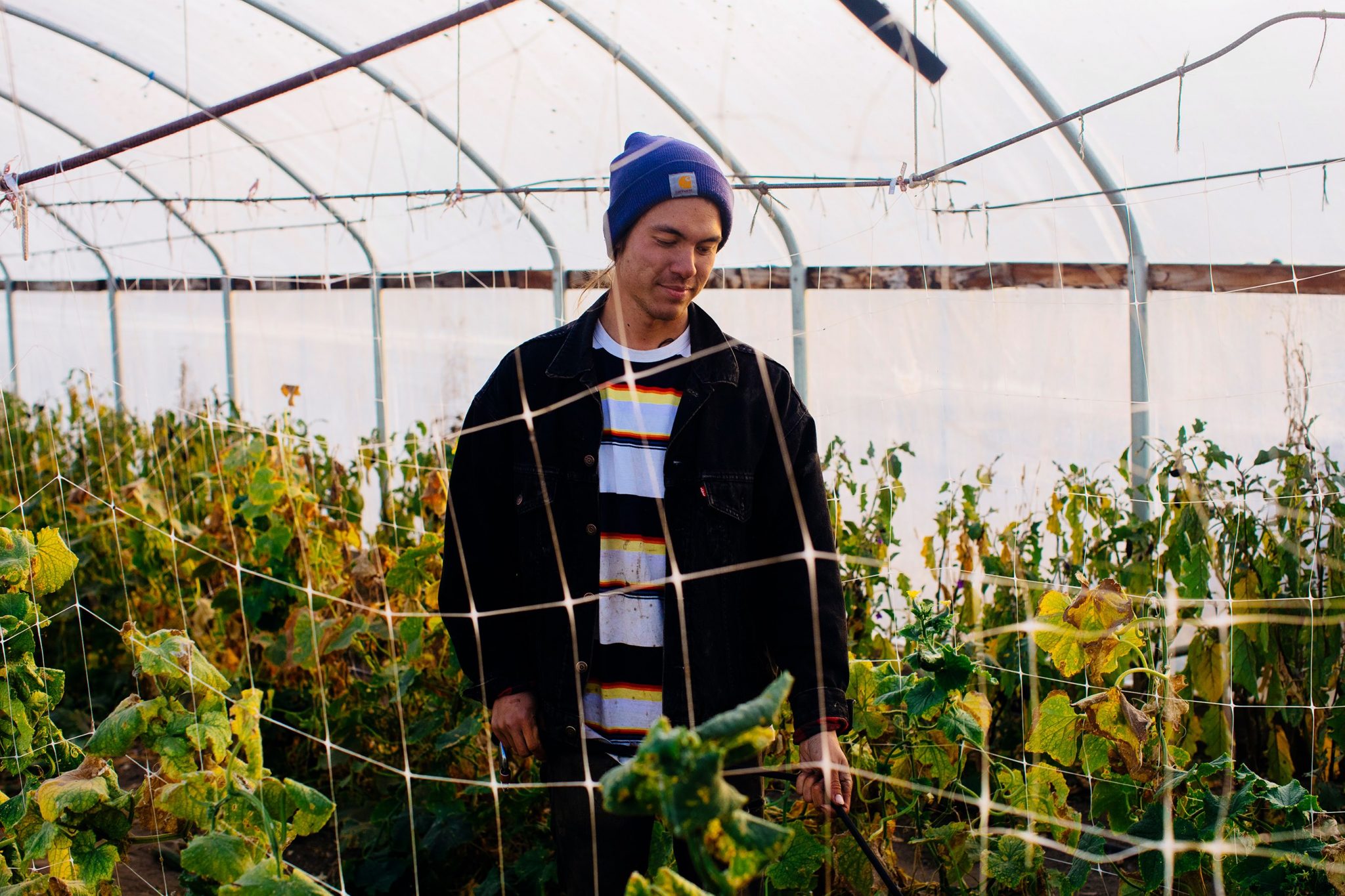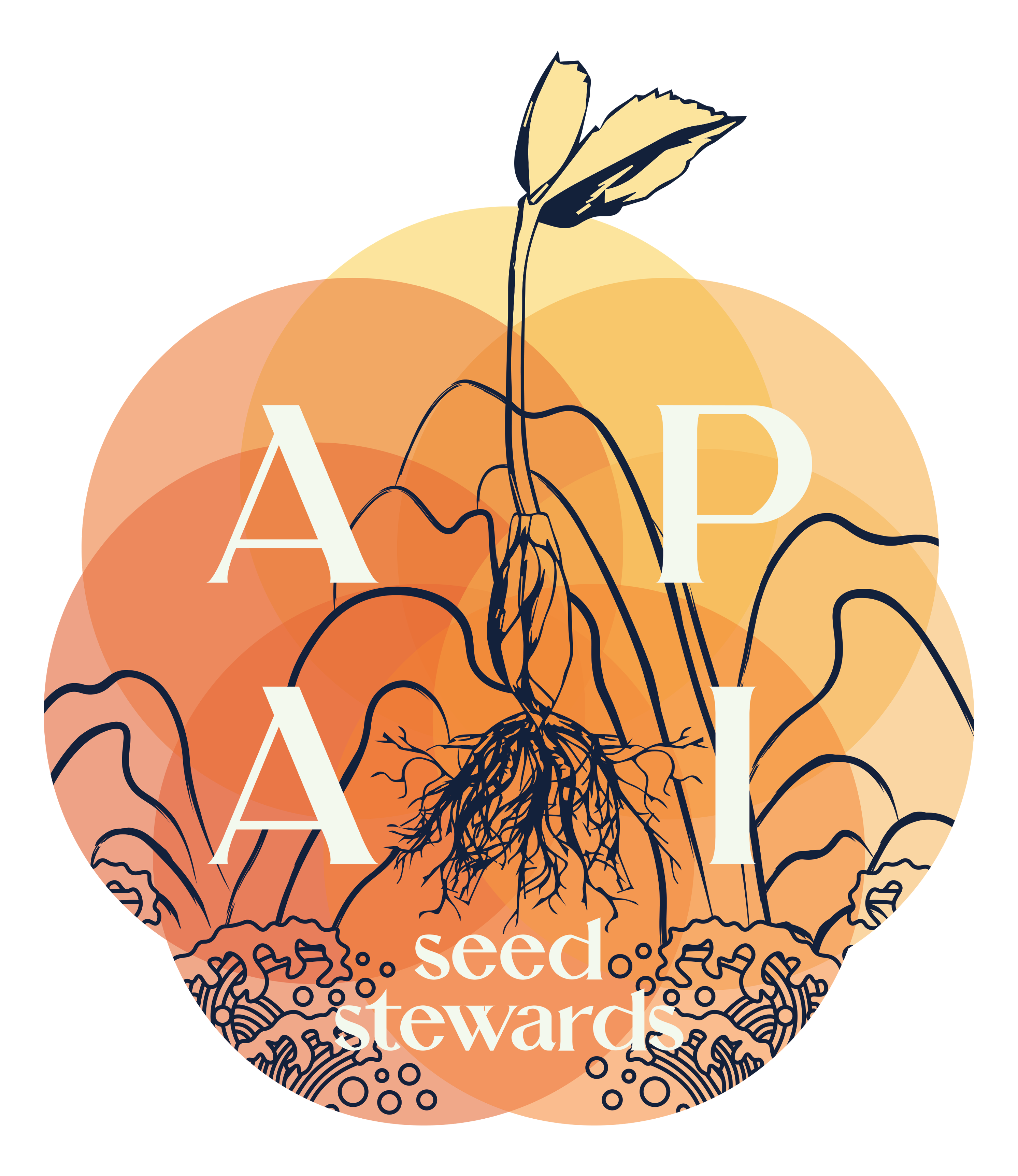
A(A)&PI Farmers' Perspectives on Access to Asian Crops
When we shop at our local Asian grocery market to retrieve produce that is culturally relevant to our cultures, one might not think of the obstacles that were in the way of getting those fruits and vegetables there. Having access to Asian grocery stores might be taken for granted, but access to the land and seeds that allow for these stores to exist are not. Jue Htoo recounts her experiences with seed saving and what it means to be lucky enough to live in an environment that allows for Asian crops to thrive.
She recalls, “When I first started farming, I would call my friends in Thailand, to be able to gather seeds for me and ship them for me and then, when I started farming I was able to use those seeds and then started to save them, realizing that if I want to continue to farm I need to save these seeds so I’m able to save a lot of seeds.”

Jue Htoo’s memory reminds us of the struggle and journeys made that are so closely tied with our ability to enjoy our own food as folks identifying with the A(A)&PI community. It is more than just about farming and food; rather, it is about all of the factors–linked to U.S. colonialism and imperialism–that have caused (forced) displacement of our ancestors, leading them to resettlement in the U.S. and figuring out ways to hold onto their roots through seeds. Jue Htoo’s mentioning of seeds traveling from Thailand reminds me of those of us living in the diaspora–though we are physically far away from the homeland, we are still deeply connected to the hxstory and collective memories that have been made there by those who came before us.
In addition to securing seeds for farming, A(A)&PI farmers are left with no choice but to stretch their capacities in order to fully support themselves. The racial capitalist structure of the U.S. and systemic inequalities that come naturally with capitalism neglect the needs of those who perform the jobs that render the most invisible and thankless. Jue Htoo and Scott admit that they must work second jobs at night in order to financially support themselves, in addition to all their laboring on the fields during the day.
Scott brings to our attention, “If you look at the USDA census of farmers at almost every scale in our country other than like, you know, mega corporate farms, most of the vast majority of farmers rely on off farm income, whether that’s working a night job…the reality is most farmers in our country do rely on off-farm income to make it possible, so I think acknowledging that and trying to figure out if we really value the work that farmers do and want to see it be a sustainable career, especially with climate change and farming only getting more difficult and margins getting thinner, then maybe we need to figure out other ways to subsidize that income because right now, farmers are subsidizing our own income”

Scott sheds light on a really important and urgent issue that goes beyond farming–he illustrates that the U.S. economic system and climate change are all contributing factors to the (un)sustainability of farming work–all factors that are consequences of the capitalist state. Furthermore, the lack of acknowledgement for farm workers and their labor is concerning, as it perpetuates the idea that farmers (AA&PI farmers especially) do not need extra support financially or in the realm of basic needs. Unfortunately, it is a reality that farm workers are not being taken care of in this country, and these struggles and issues are amplified even more if you come from hxstorically marginalized communities of color.
On a more positive note, Jue Htoo speaks on the importance of food being nourishing for the physical and spiritual body; more specifically, having access to Asian vegetables and the process of growing them is the nourishing experience because in a way, it brings one closer to their cultural and/or familial origins.
Jue Htoo asserts, “As an Asian myself, growing up and eating Asian foods and coming to the U.S. and there’s these American food–eating these types of food is not nourishing, it’s not satisfying. There’s like a sense of not feeling fulfilled, so being able to have access to food, growing your own food, it does in some way give me health benefits and feeling nourishing, and that’s what food does.”
In essence, what you put into your body is a major determinant of not only health, but also of how the emotional and spiritual body feels. In a literal sense, food should be for the soul as much as it is for the physical body.
